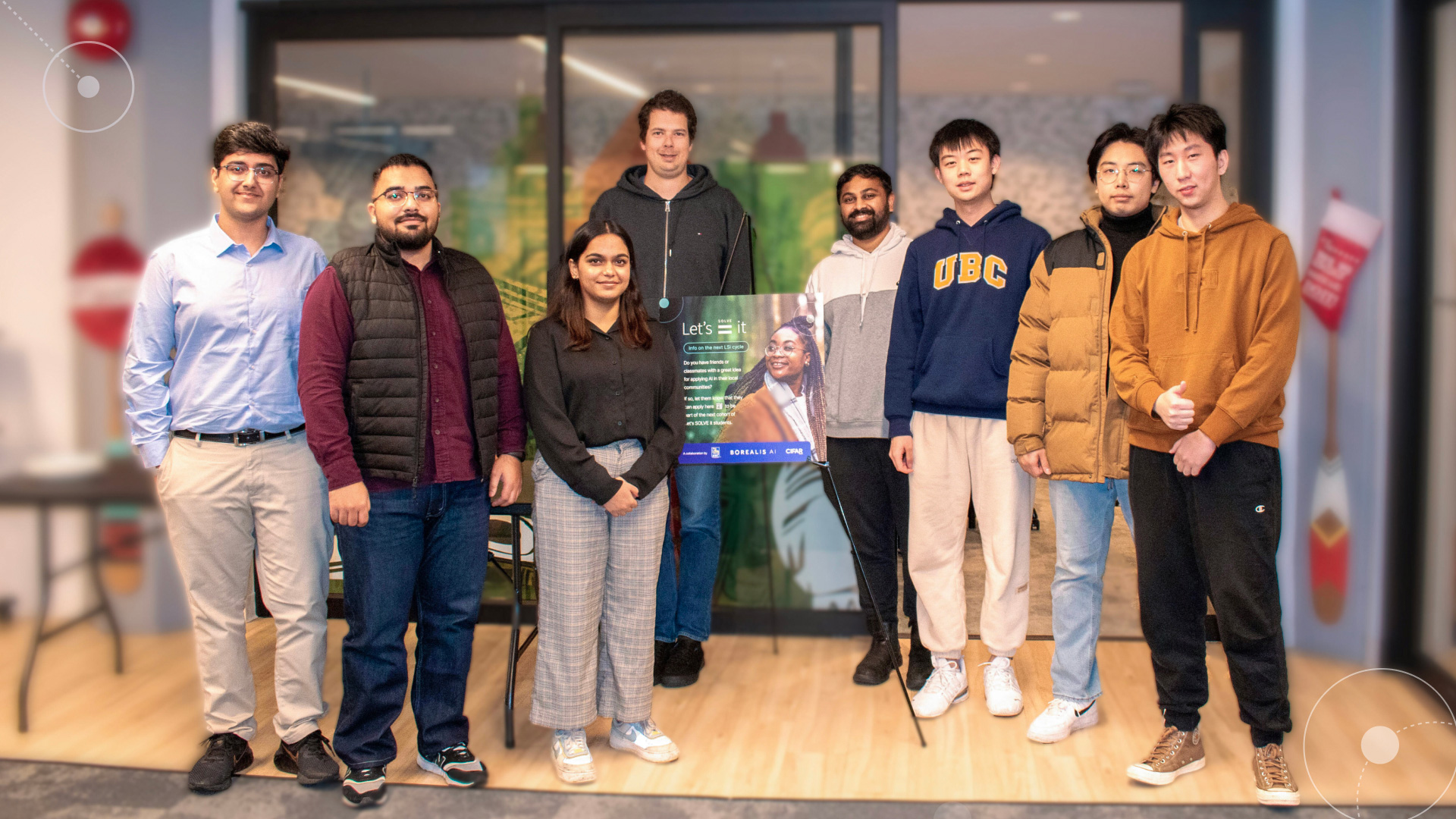
At RBC Borealis, we are dedicated to leveraging artificial intelligence (AI) as a force for good, driving innovation and addressing real-world challenges. The Let’s SOLVE it Mentorship program exemplifies our commitment to nurturing the next generation of AI leaders and empowering them to create meaningful impact through technology.
This program brings together thirty-two young, bright minds from universities across Canada, empowering them to tackle real-world challenges using AI and machine learning technologies. Dr. Eirene Seiradaki, Partnerships Director at RBC Borealis, emphasizes,
"Let's SOLVE it is not just about solving problems; it's about fostering creativity, collaboration, and a deep sense of purpose among students. Our goal is to grow the exposure of AI to youth and inspire them to create innovative solutions that address societal challenges."
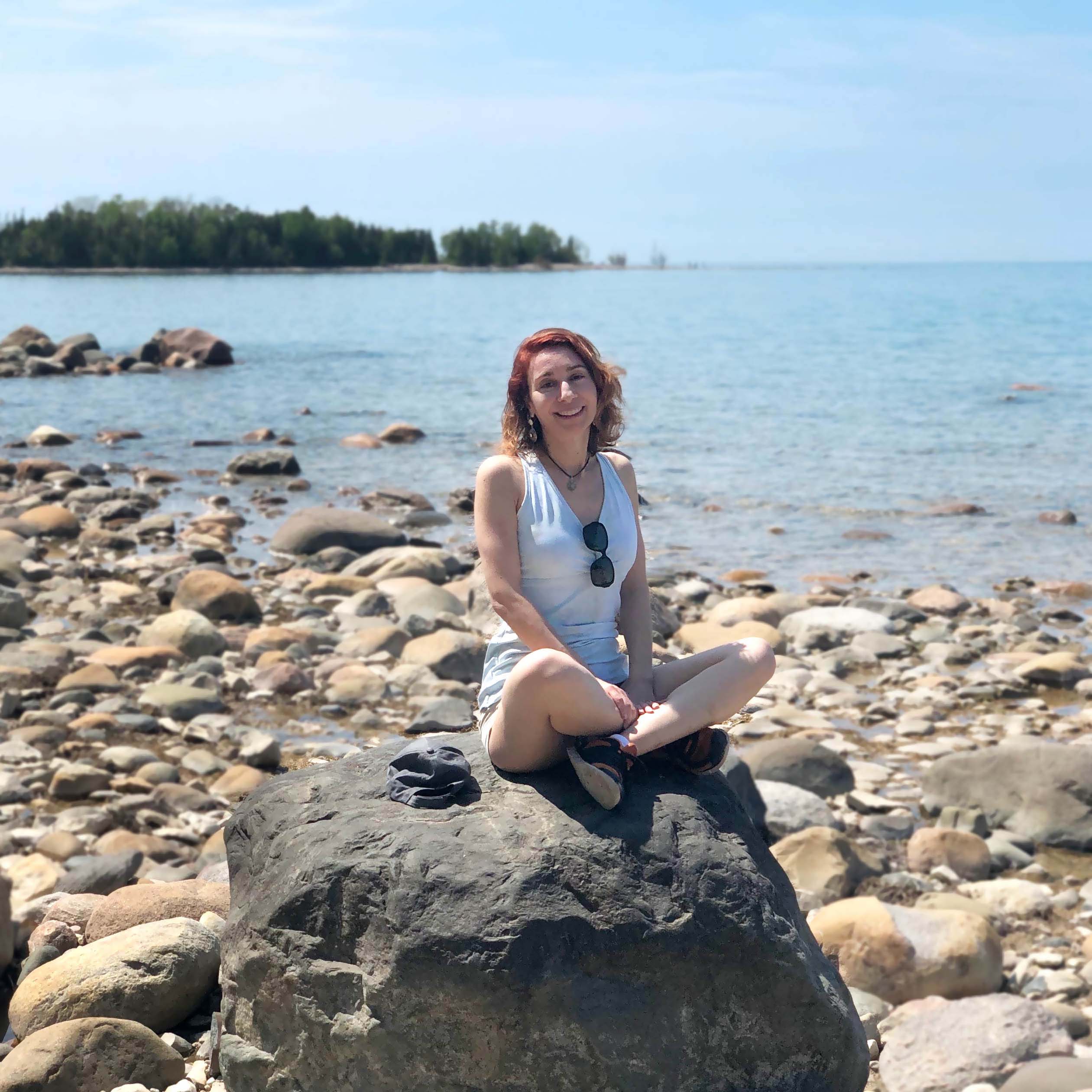
Dr. Eirene Seiradaki
Partnerships Director at RBC Borealis
One student participant, reflecting on their experience in the Fall 2023 program, shares,
"This program provided me with a platform, where I could learn and apply AI in a meaningful way. On presentations day, it was inspiring to witness my colleagues utilizing machine learning to develop applications that tackle big problems. These applications have the potential to make a positive impact in people's lives."

Michelle Lin
Team Homies
As we celebrate and showcase the achievements of the Let’s Solve it teams at the Fall 2023 Presentations Day, we invite you to join us in exploring the transformative power of AI to address complex societal challenges and build a better future.
Meet the Teams
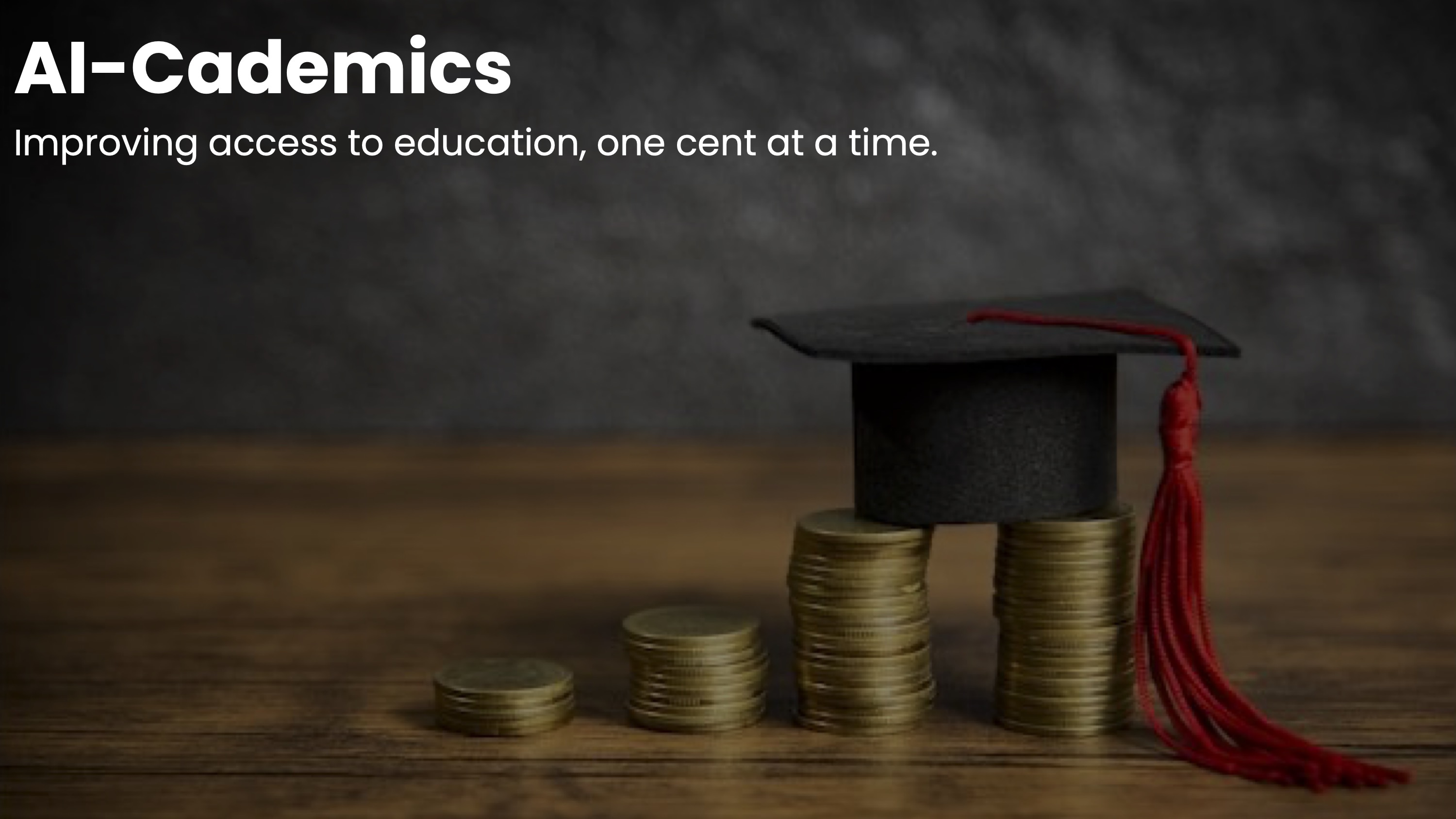
Team: AI-Cademics Technology
Members
Kiran Halkitis, Chidubem Anekwuonye, Shanzae Zaeem
University of Western Ontario logo
Mentor(s)
Cynthia Huang, RBC Borealis
Problem they wanted to solve
Barriers to post-secondary education. In Canada, students from radicalized minority groups, both domestic and international, face financial barriers in accessing university education.
Let’s Solve it
The team built an AI-driven digital platform to support students and families in finding and applying for university scholarships.
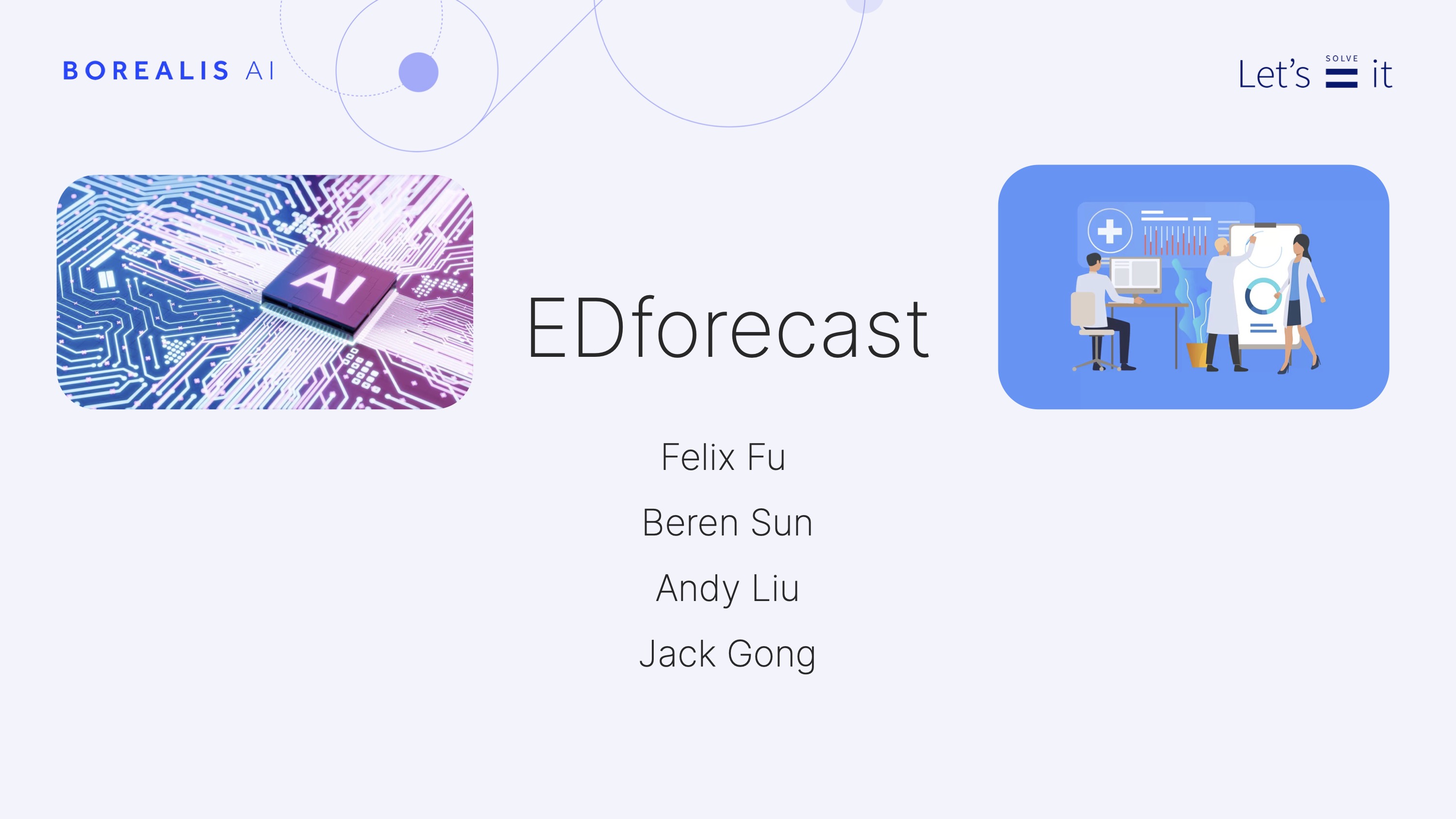
Team: EDforecast
Members
Felix Fu, Jack Gong, Andy Liu, Beren Sun
The University of British Columbia
Mentor(s)
Raquel Aoki, RBC Borealis
Problem they wanted to solve
Emergency Department wait times. In Canada, 1 in 25 patients wait more than 24 hours in the Emergency Department for an acute care bed. Can a model be built to predict patient arrival patterns to optimize hospital resource allocation and improve patient service?
Let’s SOLVE it
EDforecast used a neural network to forecast demand for urgent care services.
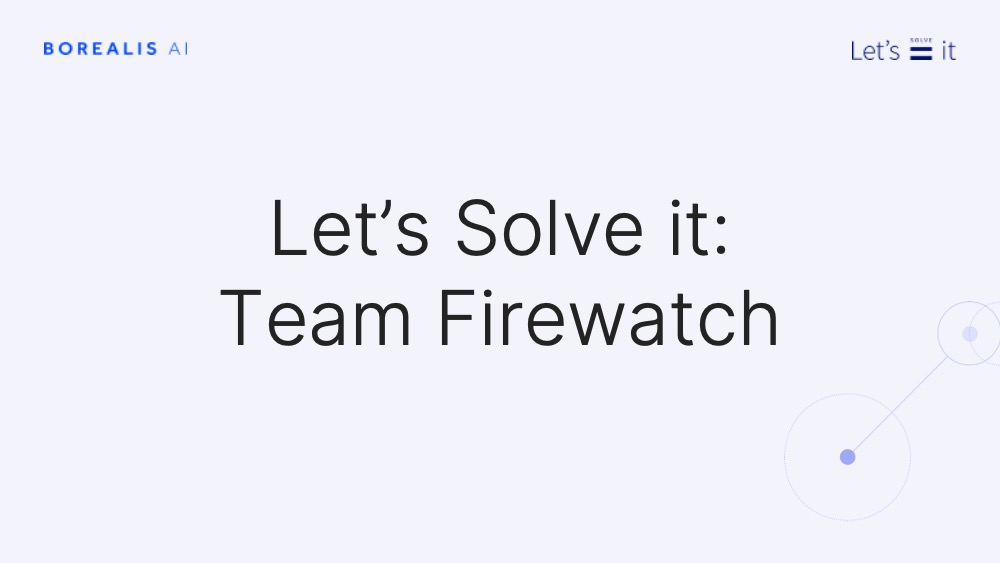
Team: Firewatch
Members
Dewang Marya, Jasjeet Singh, Vrinda Miglani
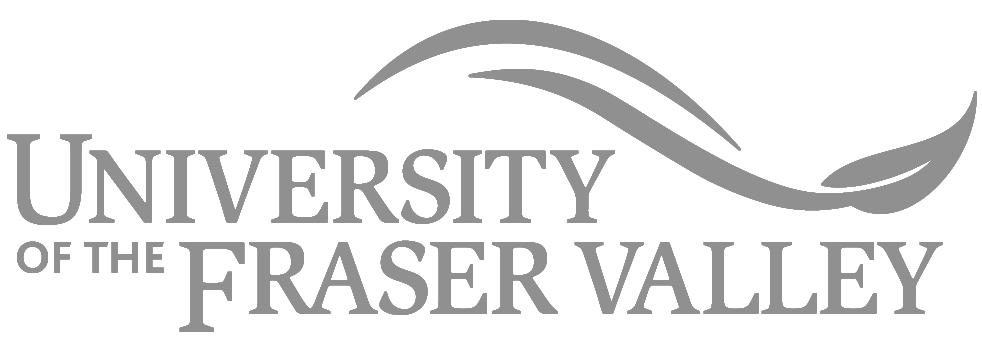
University of the Fraser Valley
Mentor(s)
Elahe Najafabadi, RBC Borealis
Problem they wanted to solve
Community impact of wildfires. There is an increase in devastating wildfires across Canada in recent years.
Let’s SOLVE it
The team focused on developing a machine learning model to predict wildfires in Canada, utilizing data from NASA’s VIIRS and MODIS satellites. The model aimed to enable early intervention and optimize wildfire management.
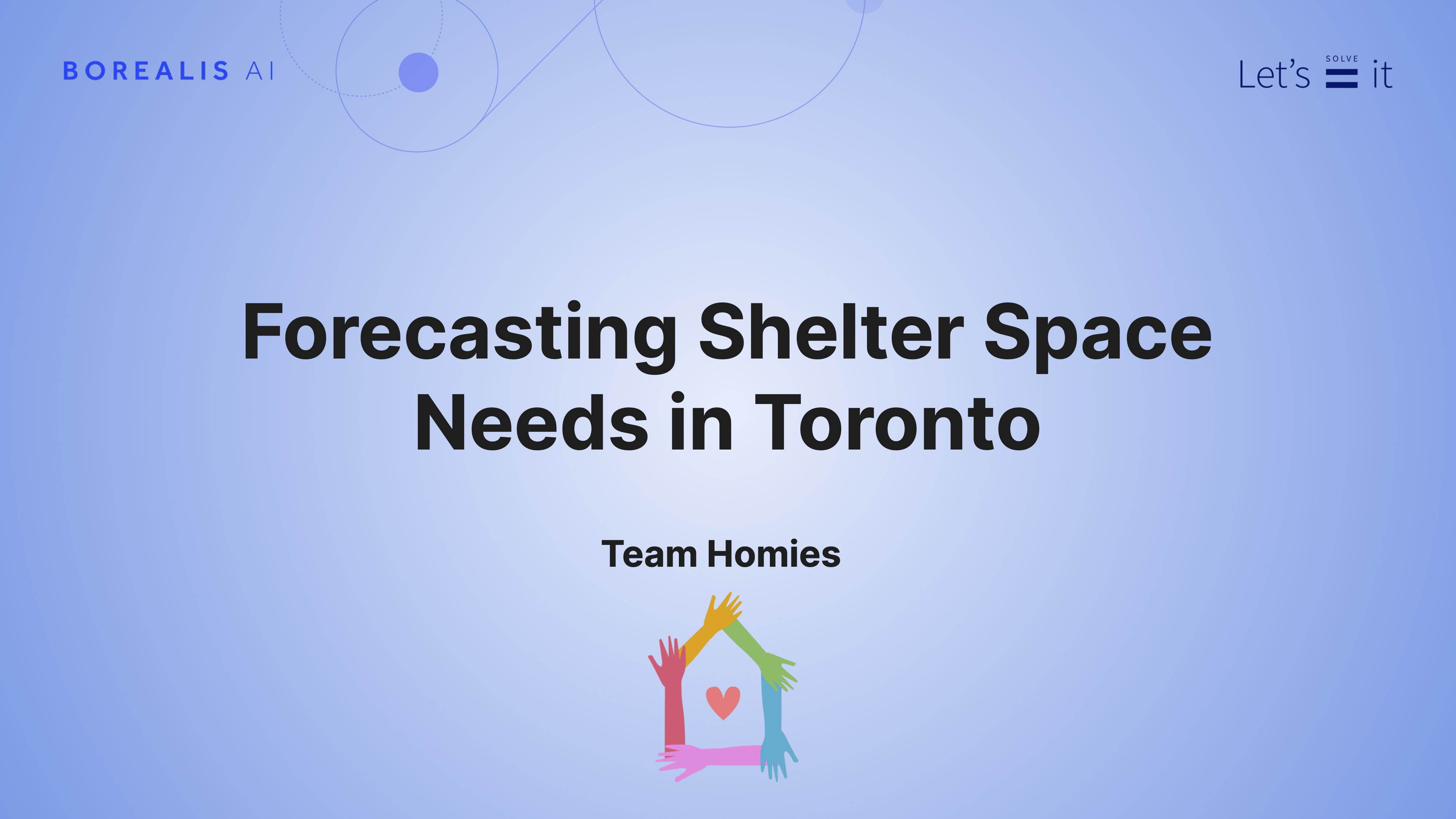
Team: Homies
Members
Kimlin Chin, Kevin Li, Michelle Lin, Abhijoy Mandal, Donna Qi
University of Toronto
Mentor(s)
Lauren Howcroft & Bowen Zhang, RBC Borealis
Problem they wanted to solve
Homelessness in Toronto. Homelessness in Toronto is on the rise, with over 10,000 persons actively homeless every day and shelters with high occupancy rates. Due to this, many persons are turned away from shelters and do not have access to adequate support.
Let’s SOLVE it
To visualize the predicted shelter user counts, the team built an app that included an interactive map of Toronto shelters and neighbourhoods and the time series forecast for the selected shelter/neighbourhood. They found that the Random Forest model they developed captured the trend for most shelters and could aid in bed allocation in shelters and budgetary and future planning decisions.
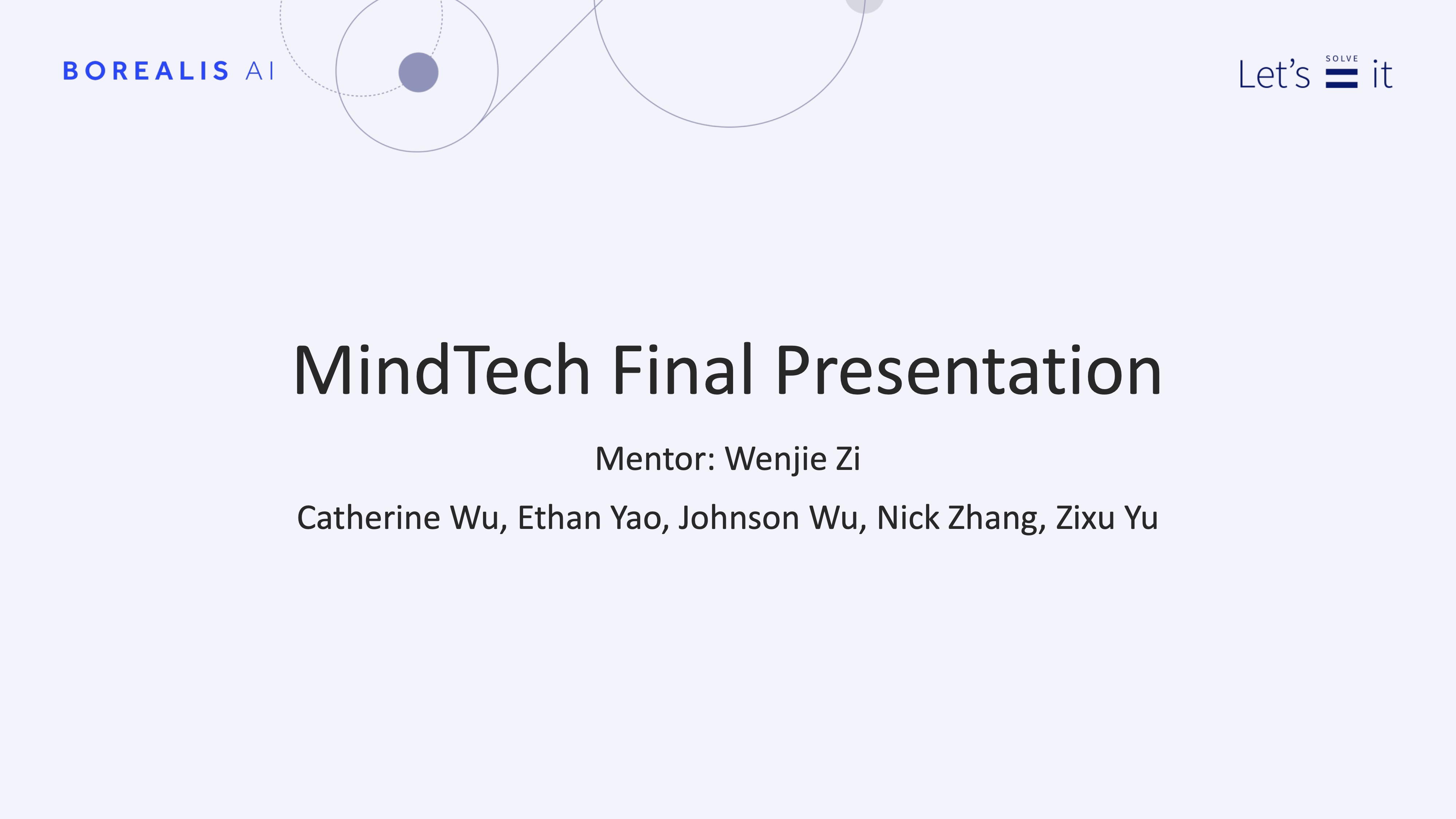
Team: MindTech
Members
Ruoxi Wu, Zixu Yu, Yongxing Zhang, Xinchen Tao, Jiacheng Wu
University of Waterloo
University of Alberta
Mentors(s)
Wenjie Zi, RBC Borealis
Problem they want to solve
Lack of mental health resources for students. Many students across Canada lack access to mental health support. 44.5% of Waterloo students battled depression severe enough to disrupt their daily activities (PAC-SMH, 2017).
Let’s SOLVE it
The MindTech team built a Chatbot application offering immediate support and resources for individuals struggling with mental health.

Team: MIRA
Members
Minh Le, Arihant Bapna, Sarah Walker, Zoey Zhang, Emily Wan
University of Toronto
Mentor(s)
Vin Bhaskara, RBC Borealis and Philip Mathew MD, External Clinical Expert
Problem they wanted to solve
Targeted Cancer Treatment. Glioblastoma, a formidable brain cancer, poses significant challenges due to its aggressive nature and rapid progression. Despite the availability of interventions such as surgery, radiation, and chemotherapy, the variability in patient responses necessitates a more targeted approach to treatment.
Let’s SOLVE it
The team embarked on building a machine learning solution to detect the presence of MGMT promoter methylation in glioblastoma patients. The team utilized MRI scans to train and test their models, given their non-invasive nature and rich data yield.
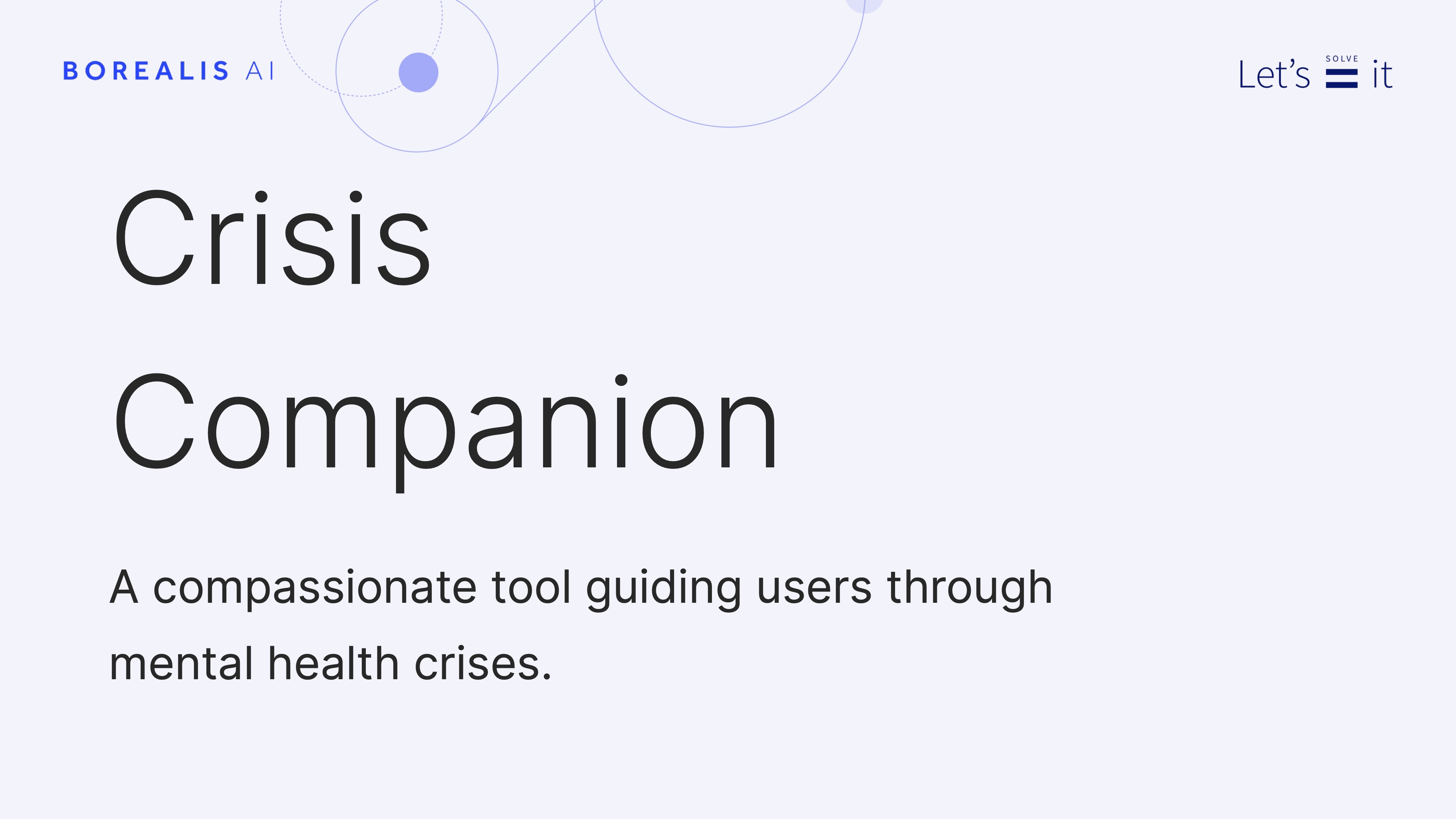
Team: Crisis Companion
Members
Ivy Guo, Ken Sun, Nikki Guo
McGill University
University of Waterloo
Mentor(s)
Lorne Schell, RBC Borealis
Problem they want to solve
Crisis Support. Existing mental health supports fall short of respecting the urgency of crisis needs. Statistics reveal callers of 988 – a suicide crisis hotline – for crisis support have experienced waiting up to 15 minutes on average.
Let’s SOLVE it
With the aid of an LLM, the team built Crisis Companion, an AI-powered first-line responder guiding users through a mental health crisis to reduce the waiting time for support.
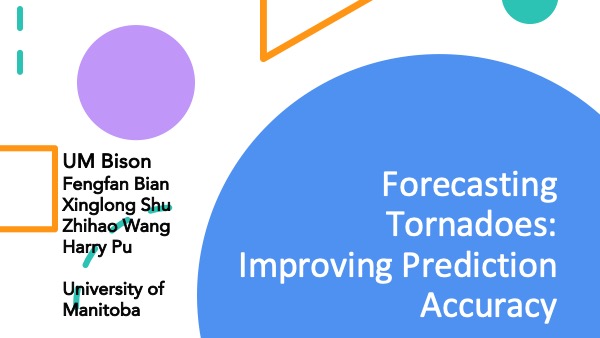
Team: Forecasting Tornados
Members
Fengfan Bian, Xinglong Shu, Zhihao Wang, Harry Pu
University of Manitoba
Mentor(s)
Samuel Haruna, RBC Borealis
Problem they wanted to solve
Severe weather event devastation. Tornados can cause economic and life-threatening impacts, and the frequency of tornadoes in Canada is challenging to predict.
Let’s SOLVE it
Inspired by a personal account of tornado devastation, the team focused on leveraging comprehensive U.S. tornado data and advanced machine learning algorithms to improve current warning systems for weather-related events in Canada.
The Let’s Solve it Presentations Day Fall 2023 marks a significant milestone in leveraging AI for positive change. The dedication and creativity displayed by each team were underscored by AI’s transformative potential in addressing complex challenges. Through this program, RBC Borealis remains committed to empowering diverse voices and creating opportunities for the community to build a future where technology serves as a force for good.
About Let’s Solve it
Let’s SOLVE it is one of a handful of initiatives that RBC Borealis and RBC support to encourage diversity, skills development, and innovation in Machine Learning (ML) at Canadian universities. Along with initiatives like our RBC Borealis Fellowships program (aimed at Ph.D. students) and our Internships program (focused on post-grad-level students), our goal is to help nurture the AI leaders of tomorrow.